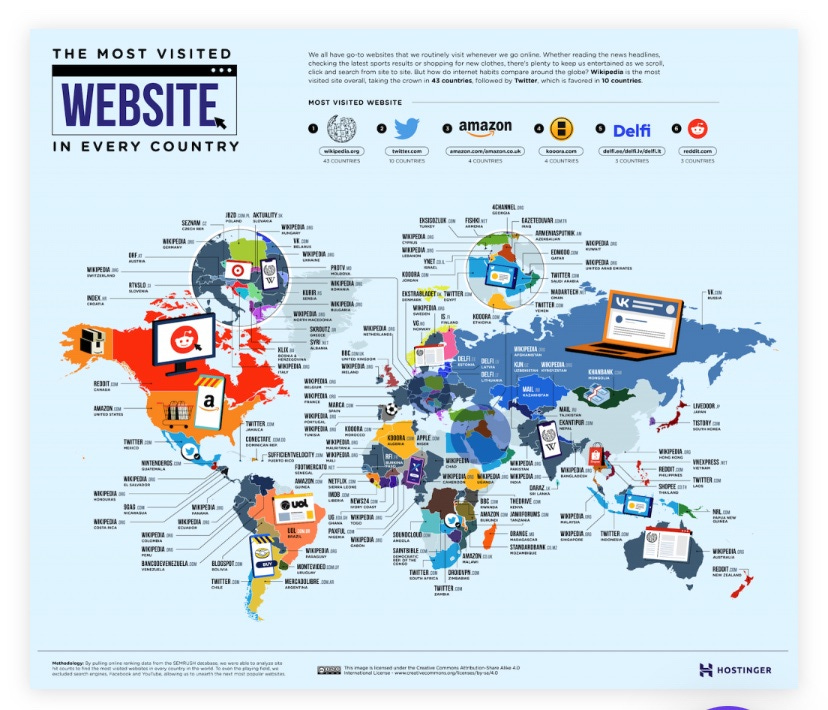Late yesterday the Wall Street Journal Editorial Board forcefully attacked Trump for his swipes at Mitch McConnell and his wife, Elaine Chow. The @WSJ Editorial Board is of course correct that Trump's comment was indeed racist (and that his threats against McConnell were beyond the pale). But we will not entertain the possibility that saying so forcefully enhances their longtime project for Asian-Americans to vote with the GOP. Over the years the WSJ Editorial Board has given voice to any and allsorts of arguments that Affirmative Action and quotas are holding back the collectve progress of Asian-Americans in America, to thebetterment of other brown peoples. Divide and conquer people of color at its damned ugliest. Perhaps the @WSJ Editorial Board would delve the fuck deeper than its facile and late-to-the-game editorial and ask itself why such racist, anti Asian-American sentiment and spew could arise from the standard-bearer of the Republican — and not Democrat — party?
“Parker Finn‘s debut feature Smile scared up a strong $22 million from 3,645 theaters to top the weekend chart. The horror pic started off with $8.2 million on theaters on Friday — including $2 million in previews. To boot, it cost just $17 million to make before marketing (it was originally intended for streaming) so will be a major profit generator. From Paramount Players and Temple Hill, Smile is about a therapist (Sosie Bacon) treating a graduate student (Caitlin Stasey) who recently witnessed a gruesome suicide. Jessie T. Usher, Kyle Gallner, Robin Weigert and Kal Penn co-star. Nearly 70 percent of the audience was between ages 18-34. The movie also played to an ethnically diverse audience (40 percent Caucasian, 32 percent Latino, 16 percent Black and 12 percent Asian/Other), according to PostTrak. Smile is the latest box office win for Paramount, and particularly for its marketing department, led by Marc Weinstock (when at 20th Century Fox, he oversaw the maverick campaign for Deadpool). Smile‘s campaign went viral in recent days when Paramount hired several people to maintain the film’s signature creepy smile when sitting behind home base at several major league baseball games.” (THR)
“Some websites never perish – they just emigrate to other places. The vintage blogging site Blogspot no longer occupies the same place in user-generated content and cultural sway as it used to in the States and elsewhere, but continues to attract 6.12 million annual visits in Bolivia. Blogging culture took hold in Bolivia as a way for marginalized groups to add their voice to the national conversation. … Wikipedia is the most visited in 15 of the 38 European countries according to our research. Having become the first-choice online knowledge bank for many – and now, the world’s largest online encyclopedia – Wikipedia has multiplied its potential readership with the addition of foreign-language portals and translations.… Twitter is a truly international concern, topping countries in North and South America, Africa, and the Middle East. East and Southeast Asia are no strangers to the social media giant. Japan has the world’s second-highest number of active users …” ( Hostinger via Raju Nariseti)
(JFK via Wikimedia Commons)
This is an incredible story, by the always interesting Christina Oxenberg, about a conversation with the man she always assumed to be her father about the man who is in all probability her father. “‘You only know your mother’s side of the story so now I’m going to tell you my side of the story. We were not getting along. We were very social. And as a result we met the president and his wife. We were part of the scene and they were the scene.’My father and I met at the Mayfair Hotel for afternoon tea, this was not a frequent occurrence. I got dressed up because that’s the sort of thing he cared about. On he went sipping tea, ‘Then one day we went out on a spearfishing outing with John and Jackie Kennedy’ … ‘And remember I told you your mother and I we were not getting along well your mother out of revenge went and slept with JFK and then told me about it. I was of course furious and I wanted to punch him in the nose but he was the president so I couldn't do that.’ It was already five or six years since I knew about JFK and since then my rift with the father was worse. Anything he cared to share I was open to hearing. Hoping it might help. ‘I made a plan to fly up to DC without Elizabeth and I packed my pistol …’” (Christina Oxenberg/SPOTIFY)
“Kim Kardashian agreed to pay a $1.26 million fine to the Securities and Exchange Commission to settle civil charges after the reality TV star touted a crypto asset, EthereumMax, on Instagram. The SEC charged Kardashian with failure to disclose that she was paid $250,000 to publish her Instagram post. In addition to paying the fine, she agreed to cooperate with the SEC’s ongoing investigation. ‘This case is a reminder that, when celebrities or influencers endorse investment opportunities, including crypto asset securities, it doesn’t mean that those investment products are right for all investors,’ said SEC Chair Gary Gensler. ‘We encourage investors to consider an investment’s potential risks and opportunities in light of their own financial goals.’ Kardashian also agreed to not promote any crypto securities for three years …The settlement includes a $1 million fine and forfeiting the $250,000 payment she received, plus interest. Gensler tweeted that ‘any celebrity or influencer’s incentives aren’t necessarily aligned with yours.’ He said the investing public shouldn’t confuse the skills of celebrities ‘with the very different skills needed to offer appropriate investment advice.’” (CNN)
“Almost no one comes out looking good in the 40 pages of text messages released last week by the Delaware Chancery Court as part of the never-ending spectacle that is Twitter v. Musk. In the published exchanges, investors and bankers solicitously maneuver for a piece of the deal, Friends of Elon carefully stoke his ego, and major media figures obsequiously angle for an interview. Even Twitter Inc. co-founder and former Chief Executive Officer Jack Dorsey, who originally tried to talk Musk into joining the board and then attempting to take the company private, metaphorically throws his own garments up onto the stage. ‘I couldn’t be happier you’re doing this,’ he texts as Musk was on the verge of becoming a board member. ‘Got very emotional when I learned it was finally possible.’ But reading through the many pages of messages, there’s one figure who approached the world’s wealthiest person on an even keel: current Twitter CEO Parag Agrawal. At first, Agrawal, who has been at Twitter for more than a decade and was named chief executive last November, is solicitous to the guy who might become one of his bosses on the board of directors. ‘I’m super excited about the opportunity and look forward to working closely and finding ways to use your time as effectively as possible to improve Twitter and the public conversation,’ he writes on April 3. Over the next few days, Musk and Agrawal communicate directly via text messages and have at least one late-night phone call, and Musk floats some of his notions for change. ‘Would be great to unwind permanent bans, except for spam accounts and those that explicitly advocate violence,’ he texts Agrawal on April 5th. Agrawal doesn’t respond to this text—or if he does, it isn’t included in the data dump. In fact, opening the floodgates to banned conspiracy theorists such as, say, Alex Jones (not to mention a certain former president) would have significant ramifications on the tenor of conversation on Twitter. Instead, Agrawal invites Musk to talk about his specific technical ideas for the long embattled social network, asking him to ‘treat me like an engineer’ instead of a CEO and promising to evaluate his proposals neutrally. ‘I want to hear all the ideas—and I’ll tell you which ones ill make progress on vs not. And why,’ Agrawal texts on April 7th. He also asks Musk to speak to Twitter staff and answer questions, including ‘some from people who are upset that you are involved and generally don’t like you for some reason.’ And then things go spectacularly sideways.” (Bloomberg)
“On September 16, a 22-year-old woman, died in Kasra Hospital, in Tehran. Amini had been arrested by Iran’s morality police for improperly covering her head; while in police custody, Amini fell into a coma from which she did not awaken. Her family has challenged official accounts of Amini’s death and alleged that she was beaten by authorities; reports on her death have included similar testimony from witnesses to Amini’s arrest. Among the first reporters to detail Amini’s death was Niloufar Hamedi, a reporter for the Tehran based newspaper Shargh. On the day of Amini’s death, Hamedi shared a photo of members of Amini’s family embracing in the hospital; the photo was then widely circulated. The following day, September 17, protesters at Amini’s funeral in her hometown of Saqez, a city in Kurdistan Province, met with resistance from armed forces. Protests quickly spread from Iran’s Kurdish regions throughout the country—fueled, the New York Times reported, by ‘a range of grievances: a collapsing economy, brazen corruption, suffocating repression and social restrictions.’ On September 22, agents from Iran’s Ministry of Information raided Hamedi’s home, confiscated her laptop and phone, and arrested her. Hamedi’s Twitter account was suspended; her husband, Mohammad Hossein Ajorlou, tweeted that Hamedi is being held in Evin Prison, and has been interrogated and placed in solitary confinement. Hossein and Hamedi’s lawyer, Mohammed Ali Kamfirouzi, are tweeting updates about Hamedi’s status. As of late last week, the Committee to Protect Journalists had counted twenty-eight journalists arrested in Iran since protests began. (On a broader scale, state-backed news agency Tasmin reported that authorities have arrested 1,200 people in connection to protests; other outlets have reported that dozens have been killed and injured.)” (Feven Merid/CJR)









